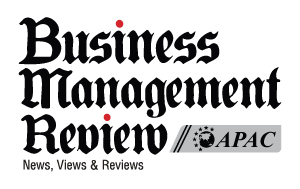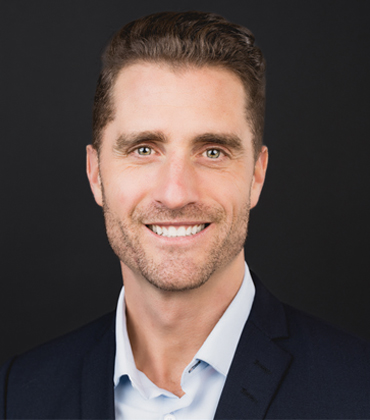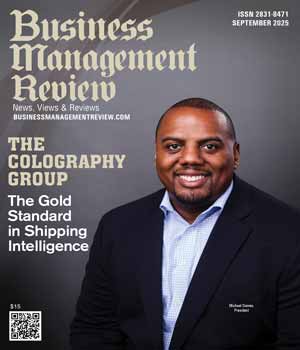I agree We use cookies on this website to enhance your user experience. By clicking any link on this page you are giving your consent for us to set cookies. More info
- Home
- Business Consulting
- The Maker Group
Commercial capability building is fundamentally a mindset shift—not just a series of training sessions. It’s about embedding the skills and behaviors that drive growth not only in sales but across the entire value chain. Today’s market is flooded with fragmented solutions: sales workshops here, negotiation tools there. While these may address individual gaps, they rarely come together as a cohesive, strategic whole.
Like a one-stop shop, The Maker Group offers a complete capability-building framework.
By uniting commercial skills, behavioral science, and real-world application into an integrated approach, the company stands tall in a sea of sameness. It doesn't focus solely on sales—it works equally with procurement and supply chain functions, helping both sides become more commercially capable and behaviorally aware.
“More than just teaching techniques, our goal is to transform how organizations think, act, and trade,” says Paul Voisard, PMP, MBA, partner. “We understand that the key to commercial success is not just what’s visible in the room, but what’s actually happening beneath the surface.
The Maker Group’s clients are large multinational organizations, primarily in the Fortune 500 or 1000. While it also supports mid-market companies, the nature of its work requires a certain scale—typically those with established sales or learning and development functions. In these environments, the company makes a significant impact by helping businesses shift from reactive to proactive.
This transition begins with a deep understanding of the client through stakeholder interviews and diagnostics. From there, The Maker Group builds tailored solutions that address commercial challenges, whether in sales, procurement, or both. Training is delivered through blended modalities, including in-person, virtual, self-led, and gamified learning journeys—all reinforced with practical tools to embed the learning.
At the core of every program is experiential learning: hands-on, interactive, and engaging. Avoiding “death by PowerPoint,” The Maker Group uses a teach-do-learn model, followed by activities, casework, and real-time feedback. Regardless of the focus—sales, negotiation, or planning—each program is built around the 70-20-10 principle: 70 percent of learning happens on the job, 20 percent through coaching, and only 10 percent in formal sessions.
As a result, clients gain immediate value through key behavioral insights that reveal how their actions impact deal outcomes. But lasting growth requires more than insight. That’s why The Maker Group’s approach goes beyond one-off training to focus on long-term behavior change through ongoing reinforcement—building sustained commercial capability.
This commitment to lasting impact was illustrated in a partnership with a global consumer packaged goods firm. The Maker Group transformed the client’s sales organization from the ground up, shifting from a brand-first to a category-first approach. Traditionally, companies lead with why their brands deserve more shelf space, but retailers mostly care about the performance of the entire category—not just one brand.
The Maker Group guided the client to focus on the category’s challenges and opportunities rather than simply pushing product, positioning them as strategic partners—not merely sellers. The result was powerful: a shift from incremental to exponential growth, underpinned by stronger retailer relationships.
It’s a testament to The Maker Group’s client-centric approach. Renowned for being flexible, responsive, and easy to work with, the company earns trust as a reliable partner. Unlike rigid consultancies with an “our way or the highway” mindset, The Maker Group adapts to client needs, making collaboration smooth and effective.
Today, The Maker Group sets the standard in commercial consulting by combining practical learning with a behavior-driven approach, holistically redefining the way business is done. By making the invisible visible, it equips organizations to move from guesswork to precision, from transactional to strategic, and from incremental results to exponential growth.
Like a one-stop shop, The Maker Group offers a complete capability-building framework.
By uniting commercial skills, behavioral science, and real-world application into an integrated approach, the company stands tall in a sea of sameness. It doesn't focus solely on sales—it works equally with procurement and supply chain functions, helping both sides become more commercially capable and behaviorally aware.
“More than just teaching techniques, our goal is to transform how organizations think, act, and trade,” says Paul Voisard, PMP, MBA, partner. “We understand that the key to commercial success is not just what’s visible in the room, but what’s actually happening beneath the surface.
The Maker Group’s clients are large multinational organizations, primarily in the Fortune 500 or 1000. While it also supports mid-market companies, the nature of its work requires a certain scale—typically those with established sales or learning and development functions. In these environments, the company makes a significant impact by helping businesses shift from reactive to proactive.
This transition begins with a deep understanding of the client through stakeholder interviews and diagnostics. From there, The Maker Group builds tailored solutions that address commercial challenges, whether in sales, procurement, or both. Training is delivered through blended modalities, including in-person, virtual, self-led, and gamified learning journeys—all reinforced with practical tools to embed the learning.
At the core of every program is experiential learning: hands-on, interactive, and engaging. Avoiding “death by PowerPoint,” The Maker Group uses a teach-do-learn model, followed by activities, casework, and real-time feedback. Regardless of the focus—sales, negotiation, or planning—each program is built around the 70-20-10 principle: 70 percent of learning happens on the job, 20 percent through coaching, and only 10 percent in formal sessions.
-
More than just teaching techniques, our goal is to transform how organizations think, act and trade
As a result, clients gain immediate value through key behavioral insights that reveal how their actions impact deal outcomes. But lasting growth requires more than insight. That’s why The Maker Group’s approach goes beyond one-off training to focus on long-term behavior change through ongoing reinforcement—building sustained commercial capability.
This commitment to lasting impact was illustrated in a partnership with a global consumer packaged goods firm. The Maker Group transformed the client’s sales organization from the ground up, shifting from a brand-first to a category-first approach. Traditionally, companies lead with why their brands deserve more shelf space, but retailers mostly care about the performance of the entire category—not just one brand.
The Maker Group guided the client to focus on the category’s challenges and opportunities rather than simply pushing product, positioning them as strategic partners—not merely sellers. The result was powerful: a shift from incremental to exponential growth, underpinned by stronger retailer relationships.
It’s a testament to The Maker Group’s client-centric approach. Renowned for being flexible, responsive, and easy to work with, the company earns trust as a reliable partner. Unlike rigid consultancies with an “our way or the highway” mindset, The Maker Group adapts to client needs, making collaboration smooth and effective.
Today, The Maker Group sets the standard in commercial consulting by combining practical learning with a behavior-driven approach, holistically redefining the way business is done. By making the invisible visible, it equips organizations to move from guesswork to precision, from transactional to strategic, and from incremental results to exponential growth.
Thank you for Subscribing to Business Management Review Weekly Brief




